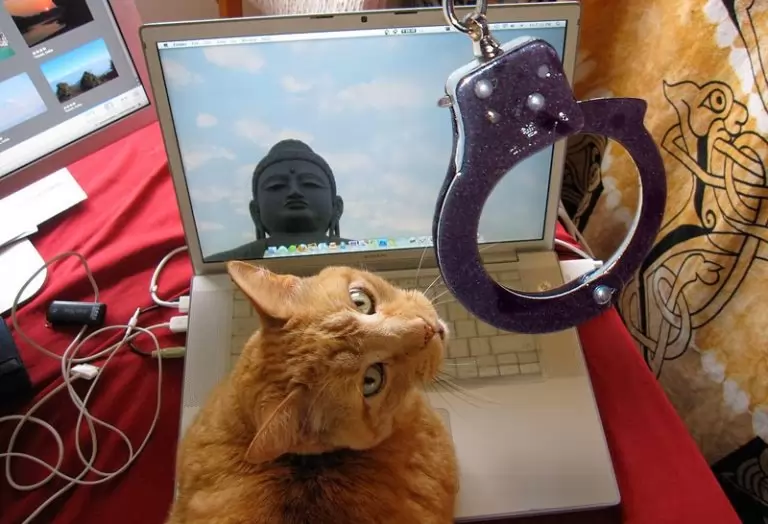Expressing Yourself Safely Online
Now that the Supreme Court has declared online libel as constitutional, we have to find
ways to avoid committing this while expressing ourselves online.
The uproar on social media might force the SC to reconsider its decision but it’s better to know if we are already treading dangerous waters or else:
  |
| Cat arrested after using Facebook (just kidding!). Photo of handcuff by Pakistan Today. |
The Basics: What Doesn’t Count as Online Libel
The SC clearly states that the Cybercrime law should punish the original author of the libelous post only. If you share or react to it, you can’t be sued for online libel.
This means that it is still safe to ‘Like’, ‘Share’ and/or ‘Comment’ on posts online. Yeah, you can share this post on Facebook and that won’t be considered libelous for you.
If you are posting something on Facebook, Twitter, YouTube or your Blog, that’s the time that you should be extra careful.
Consulting the Revised Penal Code of the Philippines
  |
| Atty. Berteni “Toto” Causing |
The Cybercrime Law refers us to the Revised Penal Code for the definition of ‘libel’. But let’s not go there (our noses might bleed), here’s a simplified version of libel’s definition is offered by
Atty. Berteni “Toto” Causing:
D for Defamation – This has nothing to do with ‘fame’ but with ‘shame’. If what you post online can put a person in shame or hurt his honor – that might be libelous.
I for Identification – Even if you did not include a name in your post but it can be derived based on the rest of your article, which can still be considered as libel. Much more if you the name of the person or company is there.
M for Malice – Malice means that you have the intention to defame a person. You can’t reason out just by saying that what you posted is true. Likewise, posting a false statement can be libelous too.
P for Publication – Everything that you post online that can be viewed by a large audience is covered by publication. Even if you set your Facebook post to ‘Friends Only’ but hundreds of people can see it, that can still be considered as libel.
All of these must be present for you to be convicted of libel.
Take note that photos, videos and other types of media posted online are subject to the Cybercrime Law.
This is very important: I’m not a lawyer. If you want more details about online libel or someone just sued you, consult a lawyer!
Conclusion
I don’t like the Cybercrime Law. It seems to limit our freedom of expression in the internet worse than it does in real life.
However, I’m happy with SC’s decision not to allow law enforcement agencies to collect our personal data and take down websites immediately.
If the decision on online libel won’t be reversed, we just have to be more careful in expressing our thoughts online if it can put a person in shame.
